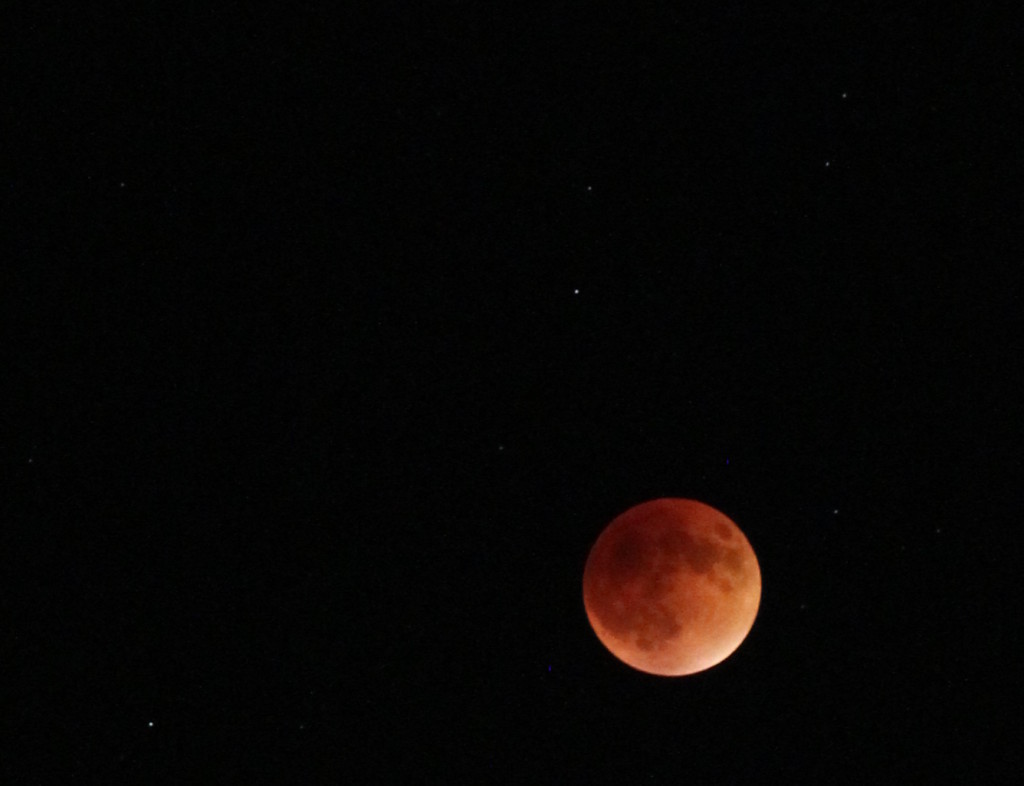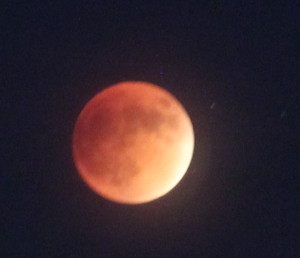Just like everyone else on the internets, an supermoon eclipse capture, courtesy of PTvAvM
Taking photos at night requires longer exposure times, generally for longer than you can hand-hold the camera steady. You could hi-ISO your way through it, but you get lots of noise grain that pollutes your night sky, and washes out your colors.
The key to taking long exposure shots (not too long though, since the moon’s position is moving) is a stable, easily manipulable tripod. Which, I don’t own yet. I’ve made do with a $10 budget priced set of legs who’s first stand-in was at our honeymoon, where lightweight and cheap fit the requirements. But since then the camera bodies have gotten larger and with extra accessories have pushed the confidence and safety limits. I believe after dealing with stiction and non-precision, non-repeatable adjustments tonight I’ve finally got enough justification to upgrade to a Davis & Sanford Provista 7518 Tripod with FM18 Head[*]
Also, if you’re diligent in protecting the front element of your lens with a UV filter, like a Tiffen Haze-1 Filter[*] this is one of those times you actually want to remove that extra glass. Otherwise you risk extra ghosting, flares, or reflections, like this early shot:
There’s certainly lots of premium tripods out there for still photography and HD video, each with their strong followings, and the price tags to match. With luxe Italian sounding names to boot.
I don’t make money with photography. I just want to take better photos of people, things and scenery. With that, after watching this guy’s review comparing 4 affordable tripods, the
Davis & Sanford Provista 7518 Tripod with FM18 Head[*] appealed the most to me.
Whether or not to use an additional piece of glass to protect your expensive glass lens assembly is also a contentious topic, depending on who you talk to. There’s certainly a case against using it as I’ve shown above, but I will say for most other occasions a quality filter like the Tiffen Haze-1 Filter[*] will not have an effect on image quality while protecting your lens against minor scratches, and provide an easier surface to keep clean. A write up that I came across years ago shows how much UV the Tiffen Haze-1 really blocks compared to other makes.
[*] Product links included on this page lead to external merchant site(s) in which this site participates in a link referral program. Clicking through these links and purchasing referenced products or other products sold by the merchant helps this site. More information may be found on our “Support Us!” page.


